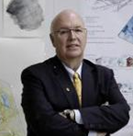(Click here for new requirements effective Fall 2020)
Course Requirements
Approved May 26, 2009
All graduate students must take at least one course in each of the following areas; Ph.D. students must fulfill this requirement before taking the qualifying exam.
- Environmental Physics:
16-375:523 Environmental Fate and Transport
16-107:532 Atmospheric Physics
16-375:555 Soil Physics - Biological Systems:
16-375:510 Environmental Microbiology
16-375:519 Wetland Ecology
16-375:573 Soil Ecology - Environmental Chemistry:
16-375:517 Applications of Aquatic Chemistry
16-375:522 Environmental Organic Chemistry
16-375:540 Atmospheric Chemistry - Management and Policy*:
16-375:530 Hazardous Waste Management
16-375:535 Environmental Law and Policy
Legal Aspects of Environmental Planning
(34:970:523) offered by Dr. Andrew R. Davis at
the Urban Planning & Policy Development Program
can be used as an approved alternate.
ENOH-0656-001 Risk Assessment
* Area D is currently under revision
Additionally, all M.S. students must take at least 1 credit of seminar, and all Ph.D. students must take at least two 1-credit seminars.
- 16:375:613 Seminar in Environmental Science (1)
- 16:375:612 Seminar in Environmental Science (1), or
16:375:671 Seminar in Meteorology (1)
The above seminar requirements apply to students who enter the program after June 1, 2002. They do not apply to students (including those admitted to the program later than this date) who have completed the previous core, which consisted of 16-375:513 and 16-375:514, Fundamental Concepts of Environmental Science I and II, plus seminar. Students who have completed only 513 or 514 (but not both) must take the new core, but may use the one course they completed as a "wildcard" to fulfill any one of the four areas. Also, with advisor approval, a student may petition the Curriculum Committee for permission to substitute another course (including one taken elsewhere) for one of those listed within an area.
Core Course Substitution Guidelines
October 5, 2009
Introduction
GPES students may petition the Curriculum Committee to request a core course substitution if a graduate course that is similar to one of the core courses was taken at another university. Students who took one of the core courses at the 400-level as a Rutgers University undergraduate may count that course as fulfilling the core requirement, however, the credits for such a course cannot count toward the graduate degree. In general, Rutgers graduate courses outside the GPES curriculum cannot be substituted for core courses; however, the Curriculum Committee may accept such proposed substitutions if requested in advance (i.e. prior to taking the course). Core course substitution requests submitted after a course has been completed will usually not be considered.
Procedure
Complete a core course substitution request form (156k PDF) and send it along with the syllabus for the proposed course and any other relevant information to the chair of the Curriculum Committee
Option Requirements
Each student must also complete the requirements of one of the program options
Courses Outside the Selected Option
Students are encouraged to take courses not listed in their chosen Curriculum Option when these are considered desirable for their research or academic development. All course selections should be discussed with the student's faculty advisor. A minimum of 15 credits must be taken within the Environmental Sciences (375) curriculum. A maximum of 3 credits of Advanced Special Problems (16-375:625 and 626) or equivalent may be counted towards an M.S. degree. For Ph.D. students, the maximum is 6 credits.
Undergraduate Courses
In many cases 300 or 400 level undergraduate courses are appropriate and accepted for credit (G prefix) toward a graduate degree with advisor approval; however, the number of undergraduate credits associated with the degree must not exceed 12.
Transfer of Credit From Other Institutions
After completing 12 credits within the Program, students may petition to transfer up to 12 course credits towards an M.S. degree or up to 18-24 course credits (a maximum of half) towards a Ph.D. from graduate work completed at other institutions.
Grades
Students must maintain a minimum GPA of 3.0 for all coursework taken at Rutgers toward a graduate degree. No more than one course with a grade of C or C+ may be counted toward the degree.
Other Requirements
A minimum of 24 course credits, 6 research credits, a thesis, and a comprehensive oral examination with defense of the thesis are required for an M.S. degree (Plan A). Alternatively (Plan B), an M.S. student may complete 30 course credits, and expository essay, and a comprehensive oral exam. For a Ph.D. (for students entering in or after January 2000, or prior admitted students who select to switch to the new requirements), students must complete at least 36 course credits (not including Special Topics/Independent Study) and 24 research credits. 12 additional credits must also be taken in either course credits or research credits (minimum 72 total). A written and oral qualifying exam must be passed before admission to candidacy, and completion and successful public defense of a thesis (dissertation) is also required. For a Ph.D. (for students entering prior to January 2000, who elect not to switch to the new requirements), students must complete at least 48 course credits and 24 research credits (minimum 72 total). A written and oral qualifying exam must be passed before admission to candidacy, and completion and successful public defense of a thesis (dissertation) is also required. [Note: advisors cannot exempt students from any requirements; such a recommendation must be approved in writing by the Curriculum Committee for program requirements, or by the individual option coordinator for option requirements. The Graduate School has additional requirements, which may be found in the Catalog.]
Option Requirements
Air Pollution Science and Technology Option
Core Required Courses (12 Credits)
All students must complete the Environmental Sciences Core.
Option Requirements. All M.S. students must complete 12 credits and Ph.D. students 15 credits from the following list.*
Other courses may be substituted with advisor and option coordinator approval.
- 16:375:503 Analytical Techniques in Environmental Chemistry (3; F; odd yrs)
- 16:375:522 Environmental Organic Chemistry (3; S; even yrs)
- 16:375:523 Environmental Fate and Transport (3; S; every yr)
- 16:375:524 Source Control of Atmospheric Pollution (3; F; every yr)
- 16:375:536 Air Sampling and Analysis Techniques (3; S; every yr)
- 16:375:540 Atmospheric Chemistry (3)
- 16:375:542 Aerosol Science (3)
- 16:107:501,502 Fundamentals of Atmospheric Sciences (3; FS; every year)
- ENOH 0695 Environmental Exposure Measurement (3; F; odd yrs; UMD-SPH)
Other Recommended Courses:
- 16:107:532 Atmospheric Physics (3)
- 16:375:527 Process Dynamics in Environmental Systems (3)
- 16:375:541 Environmental Models (3)
- 16:960:467 Applied Multivariant Analyses (3)
- 16:960:590 Design of Experiments
- 01:750:326 Computer-Based Experimentation
- 01:750:326 Modern Instrumentation
- 11:375:310 Analytical Environmental Chemistry Lab (2)
- 11:375:421 Principles of Air Pollution (3)
- ENOH 0644 Indoor Air Quality (3; F; even yrs; UMDNJ - SPH)
*Elective courses are in addition to those taken to fulfill the Environmental Sciences Core.
Environmental Chemistry Option
Core Required Courses (12 Credits)
All students must complete the Environmental Sciences core.
Option Required Courses (6 credits)* All students must complete the following courses:
- 16:375:517 Applications of Aquatic Chemistry (Spring, every)
- 16:375:523 Environmental Fate and Transport (Spring, every)
Option Elective Courses. All M.S. students must complete at least 8 credits and Ph.D. students 11 credits from the following list.** Other courses may be substituted with advisor and option coordinator approval.
- 11:375:310 Analytical Environmental Chemistry Lab (2)
- 16:375:504 Water and Wastewater Treatment (3)
- 16:375:509 Groundwater Pollution (3)
- 16:375:522 Environmental Organic Chemistry (3)
- 16:375:527 Process Dynamics in Environmental Systems (3)
- 16:375:529 Biodegradation and Bioremediation (3)
- 16:375:540 Atmospheric Chemistry (3)
- 16:375:573 Soil Ecology (3)
- 16:712:540 Chemical Oceanography (3)
- 16:712:560 History Earth System (3)
Other Recommended Courses:
- 01:460:428 Hydrogeology (3)
- 16:460:528 Groundwater Modeling (3)
- 16:460:541 Marine Geology (3)
- 16:712:525 Molecular Oceanography (3)
- 16:712:561 Professional Science Writing and Presentation (3)
- 01:750:326 Computer-Based Experimentation (4)
- 01:750:327 Modern Instrumentation (3)
- 01:960:486 Computing and Graphics in Applied Statistics (3)
- 16:960:590 Design of Experiments (3)
*These courses fulfill the Environmental Physics and Environmental Chemistry
Core course requirements.
**Elective courses are in addition to those taken to fulfill the Environmental Sciences Core.
Environmental Engineering Option
To satisfy the Environmental Sciences Graduate Program's core, all students must complete the following course core (12 credits):
- 16:375:510 Pollution Microbiology
- 16:375:517 Applications of Aquatic Chemistry
- 16:375:523 Environmental Fate and Transport
- 16:375:535 Environmental Law and Policy
All students must also take the following courses (6 credits):
- 16:180:565 Biogeochemical Engineering or 16:375:522 Environmental Organic Chemistry
- 16:375:527 Environmental Process Dynamics
Electives (6 credits for Plan A M.S., 12 credits for Plan B M.S., 18 credits for Ph.D.) are to be taken from the following list:
- 16:180:562 Design of Water and Wastewater Treatment
- 16:180:563 Advanced Hydrology
- 16:180:566 Sediment Transport
- 16:180:574 Groundwater Engineering I
- 16:180:576 Groundwater Engineering II
- 11:117:413 Unit Processes in Bioenvironmental Engineering I
- 11:117:414 Unit Processes in Bioenvironmental Engineering II
- 11:117:423 Unit Processes in Bioenvironmental Engineering Lab I
- 11:117:424 Unit Processes in Bioenvironmental Engineering Lab II
- 11:117:462 Design of Solid Waste Treatment Systems
- 11:117:468 Hazardous Waste Treatment Engineering
- 11:117:496 Design of Land Treatment Systems
- 16:375:504 Water and Wastewater Treatment
- 16:375:506 Industrial Treatment
- 16:375:524 Source Control of Atmospheric Pollution
- 16:375:525 Principles of Solid Waste Management
- 16:375:531 Biological Waste Treatment
- 16:375:534 Environmental Sustainability
- 16:375:541 Environmental Models
- MS Course Checklist Environmental Chemistry Option (Word file)
- Ph.D. Course Checklist Environmental Chemistry Option (Word file)
Environmental Microbiology Option
Core Required Courses (12 Credits)
All students must complete the Environmental Sciences core.
Option Required Courses (3 credits)* All students must complete the following course:
- 16:375:510 Environmental Microbiology (Spring every)
Option Elective Courses. All M.S. students must complete 11 credits and Ph.D. students 14 credits from the following list.** Other courses may be substituted with advisor and option coordinator approval.
- 16:375:512 Pollution Microbiology Lab (2)
- 16:375:529 Biodegradation and Bioremediation (3)
- 16:375:531 Biological Waste Treatment (3)
- 16:375:563 Geomicrobiology (3)
- 16:375:573 Soil Ecosystem Processes (3)
- 16:682:572 Microbial Ecology (3)
- 11:680:492 Microbial Ecology Lab (2)
- 11:375:453 Soil Ecology (3)
Other Recommended Courses:
- 16:682:501 Microbial Life (3)
- 16:765:533 Advanced Mycology (3)
- 11:126:486 Analytical Methods in Microbiology (3)
*This course fulfills the Biological Systems Core course requirement.
**Elective courses are in addition to those taken to fulfill the Environmental Sciences Core.
Exposure Science Option
Students Apply to this program either through the Graduate Program of Environmental Science at Rutgers University, New Brunswick, or the Graduate School of Biomedical Science at Rutgers University, Piscataway.
For further information contact one of the Option Coordinators:
|
Clifford Weisel, Professor 732-445-0168 weisel@eohsi.rutgers.edu |
Gediminas "Gedi" Mainelis, Professor 848-932-5712 mainelis@envsci.rutgers.edu |
Program Faculty
|
Brian Buckley, Ph.D. bbuckley@eohsi.rutgers.edu 732-445-0204 Research Interest: Chemical measurements, analytical methods development, Measurement of chemical contaminants, metabolites in biological and environmental matrices. |
 |
|
Nancy Fiedler, Ph.D Professor nfiedler@eohsi.rutgers.edu 732-445-0123 X632 Research Interest: Acute and chronic human neurobehavioral effects of nuerotoxicants; stress as a moderator of health effects due to exposure. |
 |
|
Panos G. Georgopoulos, Ph.D Professor panosg@fidelio.rutgers.edu 732-445-0159 Research Interest: Mathematical modeling of environmental and biological systems, ingestion and dermal absorption dosimetry, Enviroinformatics, cheminformatics and bioinformatics. |
 |
|
Howard Kipen, M.D., M.P.H. Professor Kipen@eohsi.rutgers.edu 732-445-0123 Research Interest: Prothrombotic effects of particulate matter in air pollution, organic solvents and respiratory irritants. |
 |
| Robert Laumbach, M.D., M.P.H., C.I.H. Assistant Professor Laumbach@eohsi.rutgers.edu 732-445-0123 X628 Research Interest: Air pollution, bioaerosols, occupational medicine. |
 |
|
Gediminas (Gedi) Mainelis, Ph.D. Professor Mainelis@envsci.rutgers.edu 848-932-5712 Research Interest: Exposure assessment to biological and non-biological airborne particles, air pollution, exposure and health effects of nanoparticles. |  |
|
Mark Robson, Ph.D. Professor robson@AESOP.rutgers.edu 732-932-8165 X610 Research Interest: Pesticide exposure and effects on humans and ecosystems. |
 |
|
Stephan Schwander, MD, PhD Associate Professor and Director, Center for Global Public Health schwansk@sph.rutgers.edu 732-235-5405 Research Interests: Human antimycobacterial immunity, human lung immunology during Mycobacterium tuberculosis infection and disease, effects of particulate matter on antimycobacterial immunity. |
 |
|
Christopher Uchrin, Ph.D., P.E. Professor cuchrin@rci.rutgers.edu 848-932-5738 Research Interest: Mathematical modeling of ground and surface water exposures. |
 |
|
Clifford P. Weisel, Ph.D., M.S. Professor Weisel@eohsi.rutgers.edu 732-445-0154 Research Interest: biomarkers of exposure, multi-route exposures to volatile and semi-volatile organic compounds, exposure to disinfection by-products in drinking water, the role of air pollution in exacerbation of asthma and other diseases, exposures within aircraft and other modes of transportation, indoor air, gene-environmental exposure. |
 |
Program Curriculum
This unique program, limited to Ph.D. students, offers a joint degree between two schools of Rutgers, The State University of New Jersey (RU): the Graduate School of Biomedical Sciences (GSBS) and the School of Environmental and Biological Sciences (SEBS). Its purpose is to provide instruction and research experiences examining human contact with chemical, physical and biological agents or products, and the relationships of such contacts with human activity patterns.
Candidates must take
- 32:832:595 Environmental Exposure Measurements & Assessment (3)
- 16:115:556 (IDST-5000) Ethical Scientific Conduct (1)
- 16:375:511 Journal Club in Exposure Science (1)
Effective September 2015, candidates must take 2 semesters of Journal Club in Exposure Science, but 3 semesters are strongly recommended. Postdoctoral Fellows in the program are strongly encouraged to take this course as well.
Candidates also must take at least 21 credits from the following courses, with at least one course being taken from each area. Substitutions may be allowed if approved in writing by the major advisor and option coordinator.
Epidemiology
- 16:375:508 Interpretational Epidemiology (3)
- 16:832:520 Principles of Epidemiology (3)
Environmental Science
- 16:375:523 Fate and Transport (3)
- 16:375:541 Environmental Models (3)
- 32:832:589 Advanced Environmental Hygiene Measurements (4)
Health
- 32:832:541 Toxicology (3)
- 32:832:586 Environmental Risk Assessment (3)
Statistics
- 16:960:467 Applied Multivariant Analyses (3)
- 16:960:590 Design of Experiments (3)
- 16:970:527 Adv. Multivariant Methods: Environmental & Health Issues (3)
The following are suggested to complete the total course credit requirement.
- 16:375:503 Analytical Techniques in Environmental Chemistry (3)
- 16:375:507 Environmental Chemistry (3)
- 16:375:509 Groundwater Pollution (3)
- 16:375:510 Pollution Microbiology (3)
- 16:375:512 Pollution Microbiology Lab (2)
- 16:375:520 Techniques for Biomonitoring in Aquatic Systems (3)
- 16:375:530 Hazardous Wastes Management (3)
- 16:375:536 Air Sampling and Analysis Techniques (3)
- 16:375:540 Atmospheric Chemistry (3)
- 16:375:543 Micrometeorology (3)
- 32:832:531 Environmental Health (3)
- 16:832:582 Environmental and Occupational Epidemiology (3)
- 32:832:592 Health Effects of Air Pollutants: Science and Policy (1)
- 32:832:593 Advanced Principles of Occupational Health (3)
- 11:375:403 Environmental and Public Health: Epidemiological Aspects (3)
- 11:375:421 Principles of Air Pollution (3)
- 11:375:425 Radioactivity and the Environment (3)
- 11:375:434 Principles of Industrial Hygiene (3)
- 11:670:412 Meteorological Instrumentation (3)
Pollution Prevention and Control Option
Program Curriculum
Contaminants resulting from human activities cause substantial environmental degradation. It is the purpose of this Option to examine in depth the processes required to reduce these past, present, and future impacts. Emphasis is on waste treatment, remediation, and pollution prevention/waste minimization.
M.S. students must complete a minimum of 12 credits from the following list of courses, while Ph.D. students must complete 15 credits. Other courses may be substituted with written approval of advisor and option coordinator.
- 16:375:504 Water and Wastewater Treatment (3)
- 16:375:506 Industrial Waste Treatment (3)
- 16:375:510 Environmental Microbiology (3)
- 16:375:512 Pollution Microbiology Laboratory (2)
- 16:375:524 Source Control of Atmospheric Pollution (3)
- 16:375:525 Principles of Solid Waste Management and Treatment (3)
- 16:375:527 Physiochemical Process Dynamics in Environmental Systems (3)
- 16:375:529 Biodegradation and Bioremediation (3)
- 16:375:530 Hazardous Waste Management (3)
- 16:375:531 Biological Waste Treatment (3)
- 16:375:534 Environmental Sustainability (3)
- 16:375:573 Ecosystem Processes in Soil (3)
- 11:375:421 Air Pollution (3)
- 11:375:453 Soil Ecology (3)
- 11:127:413 Unit Processes in Bioenvironmental Engineering I (3)
- 11:127:414 Unit Processes in Bioenvironmental Engineering I (3)
- 11:127:423 Bioenvironmental Engineering Unit Processes Laboratory I (1)
- 11:127:424 Bioenvironmental Engineering Unit Processes Laboratory II (1)
Other recommended courses (not counting towards the 12-15 credits required):
- 16:375:502 Stream Sanitation (3)
- 16:375:503 Analytical Techniques in Environmental Chemistry (3)
- 11:375:310 Analytical Environmental Chemistry Lab (2)
- 01:960:401 Basic Statistics for Research (3)
- 16:960:590 Design of Experiments (3)


